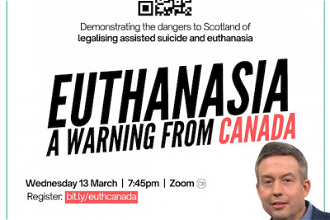Canada: 'Reconciliation with Indigenous Peoples is advancing'

Image: Vatican Media
Source: CCCB/Vatican News
Catholic bishops in Canada are gathered this week in King City, Ontario, for their annual Plenary Assembly, to discuss a series of issues including the expansion of euthanasia, reconciliation with Indigenous Peoples, the protection of minors against abuse, the upcoming Synod on synodality and the Church's work in overseas development.
Introducing the first session on Monday, 25 September, CCCB President Bishop Raymond Poisson of Saint-Jérôme-Mont-Laurier, Quebec, focused on two topics: the ongoing healing and reconciliation process with the Indigenous Peoples of Canada, with regards in particular to the Residential Schools legacy, and the forthcoming Synod on synodality in Rome.
On the first point, Bishop Poisson pointed to the significant progress achieved over the past years in the long journey to reconciliation, reiterating that the Pope Francis' Penitential Pilgrimage to Canada in July 2022, and his heartfelt apologies to the First Nations, Inuit and Métis Peoples marked a "significant milestone", inspiring the Bishops to make new forays in their individual and collective pastoral engagements with Indigenous Peoples.
He recalled, in particular, the long-anticipated publication of the Bishops' four pastoral letters on reconciliation - to the First Nations, to the Inuit, to the Métis, and to the People of God in Canada -, which, he said, will "hopefully serve as a framework for furthering relationships of trust with Indigenous Peoples for years to come".
Bishop Poisson further remarked that the Indigenous Reconciliation Fund (IRF), the registered charity the CCCB established in 2022 to support and advance healing and reconciliation initiatives, has so far collected the record sum 11 million Canadian Dollars, and is, therefore, well on track to exceed the five-year target of $30 million the bishops pledged two years ago.
Even more encouraging, he added, are the "fruits of this incredible outpouring which can already be seen in the projects being initiated by Indigenous Peoples at the local level, supported by dioceses".
Bishop Poisson said that another contribution to the healing process of the victims of the Residential Schools system, are the Guidelines issued by the CCCB this year to help Canadian dioceses develop their own policies on the disclosure of information pertaining to Indigenous-related records in diocesan archives.
The head of the Canadian bishops also recalled the milestone statement issued earlier this year by the Vatican Dicasteries for Culture and Education, and for Promoting Integral Human Development rejecting the centuries-old 'Doctrine of Discovery' that was used by Europeans to justify the elimination of Indigenous peoples' cultures and livelihoods. In this regard he anticipated that the 'Doctrine of Discovery' and its legacy will be the subject of an academic symposium.
Finally, Bishop Poisson, emphasized in this journey towards healing and reconciliation the key word is 'accompaniment'. "To those who wish to walk with us - he said - what we can offer as Christians and shepherds is empathy, compassion, and prayer so that this journey may culminate in true freedom and lasting hope not only for those who are affected today, but for younger Indigenous generations, as well."
In the final part of his report, the CCCB President spoke about the upcoming Synod, which will also be discussed during the session. There will be four Canadian bishops taking part in the synod and four non-bishop Catholics chosen by the Vatican.
As the eight delegates prepare to set off for Rome, he asked the Bishops for their accompaniment specifically in the form of prayer, "so that we may contribute to the deliberations with wisdom and prudence for the good of the Church and her faithful."
Among the other highlights of the meeting, running until 28 September, is the recent revision of the 2016 Medical Assistance in Dying (MAiD), further extending euthanasia eligibility. The revision, which will go into effect in March 2024, will make mental illness an eligible condition to receive approval for MAiD, opening the procedure up to significantly more people. Between 2016 and 2021 more than 30,000 Canadians resorted to euthanasia.
The Bishops' Standing Committee for Family and Life, chaired by Archbishop Christian Lépine, has organized a panel discussion on this topic to help the CCCB members "engage with the urgency of promoting palliative care rather than euthanasia".
LINK
CCCB President's report: www.cccb.ca/media-release/rapport-du-president-conference-des-eveques-catholiques-du-canada-assemblee-pleniere-2023/


















